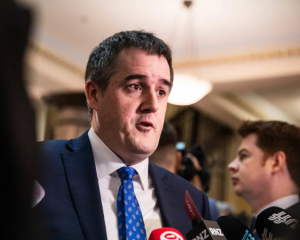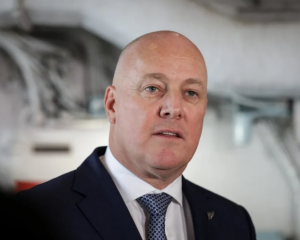
Nothing will be sacred with an unprecedented depth of soul searching needed to assess policies and personnel, say commentators.
The party has shifted increasingly to the left and top of the agenda will be discussing whether, and how, to seize back the centre ground. The party will have to ask whether it has the right leader to challenge a prime minister who has won the hearts and minds of the voting public.
David Cunliffe has already signalled his intention to stay on as leader. Any war over that could lead to blood on the floor.
Left-leading political pundit Chris Trotter described Cunliffe's stance as "a declaration of civil war".
"The trouble is, civil wars are usually very bloody and never resolve very much.
"Even if Cunliffe lost a bid to stay on as leader, he would still be despised by at least half of the party because he will have torn the party apart. Labour is stuck with Cunliffe, even if some of them don't see it that way."
Before polling day, political commentator Bryce Edwards -- lecturer in politics at the University of Otago -- said Cunliffe would have little choice but to go if the party's support dropped below 25 per cent.
"But if he gets 27 per cent or more some people might accept he has only been in leadership for a year and deserves more of a run," he said.
"If he did stay there would be a lot of pressure to rejuvenate and re-energise the party. That could be the impetus for significant reform including areas like personnel, policy and the whole structure of the party."
Labour does have a track record of backing defeated leaders post-election, who later went on to be prime minister.
After failing to win the 1996 election Helen Clark stayed on as Leader of the Opposition and led Labour to a sweeping victory in 1999.
Right-leaning political commentator Matthew Hooton said Cunliffe would have a good chance of winning a leadership contest because of his backing from unionists and activists.
"But if Cunliffe hangs on without the support of his fellow MPs, it would be the end of the party. Wise Labour heads will know they now have to move wisely. The trick will be to persuade Cunliffe not to do a Samson and bring his own party down."
Last weekend Cunliffe told the Herald on Sunday he was encouraged by a Herald-DigiPoll survey that showed 44.6 per cent of 750 voters who took part believed he should stay on regardless of the result.
If there was to be a leadership change, Hooton believed Wellington Central MP Grant Robertson would be the leading challenger.
Cunliffe secured the party's leadership 371 days ago after winning the key backing of Labour's membership and unions.
Former Labour leader David Shearer resigned the previous month, saying, "My sense is I no longer have the full confidence of many of my caucus colleagues."
Hooton added the time might also be right for Shearer to be a "contender".
Edwards said that -- leadership aside -- Labour had to re-engage with voters. Two major areas that had failed were proposing to raise the retirement age to 67 and having a fiscal policy that was too closely linked to National's economic strategy.
"Labour's economic policies follow and even mirror the present government's initiatives too closely, so many people can't differentiate between the two."
- By Russell Blackstock of the Herald on Sunday












